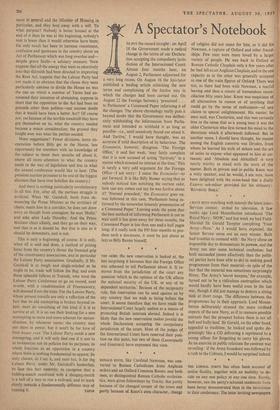RONALD KNOX, like Cardinal Newman, was con- verted to Roman
Catholicism from Anglican orders and an Oxford Common Room; and both men, as distinguished Roman Catholic ecclesias- tics, were given fellowships by Trinity. But partly because of the changed temper of the times and partly because of Knox's own character, change of religion did not mean for him, as it did for Newman, a rupture of Oxford and other friend- ships. Few men were more loved by a larger variety of people. He was back in Oxford as Roman Catholic Chaplain only a few years after he had left as an Anglican Chaplain, and in the one capacity as in the other was generally accepted as one of the main figures of Oxford. There was not, as there had been with Newman, a tearful leaving and then a return of tremendous recon- ciliation fifty years later. Knox was suspicious of all alternatives to reason or of anything that could go by the name of enthusiasm—of any claims to special enlightenment. His master, he once said, was Chesterton, and this was certainly true in the sense that as a young man it was the older Chesterton who first turned his mind to the directions which it afterwards followed. But in another sense, I should have thought, his master among the English converts was Dryden, from whom he learned his style of debate and the art of satire to expose what appeared to him as un- reason; and 'Absolute and Abitofhell' is very nearly worthy to stand with the work of the master. Both in private and in public Knox was a witty speaker, and he would, I am sure, have been delighted with the cross-head that a Daily Express sub-editor provided for his obituary :
'REWROTE BIBLE.'






























 Previous page
Previous page